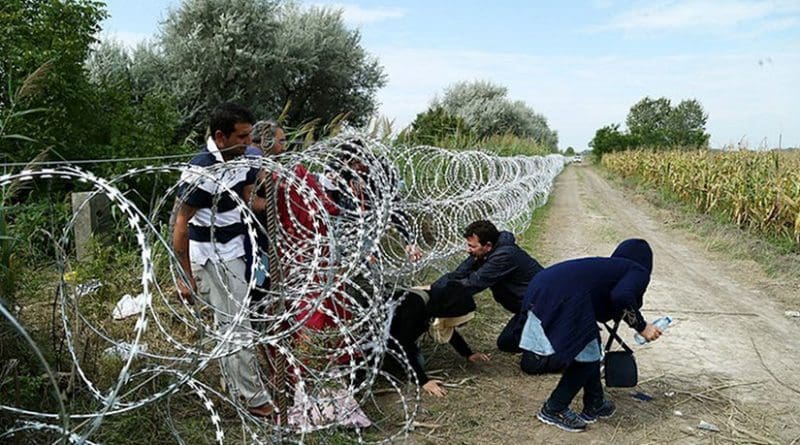Austria Sends Troops To Hungary-Serbia Border
By EurActiv
(EurActiv) — Austria on Thursday (3 November) sent 60 troops to Hungary’s border with non-EU Serbia as Vienna’s defence minister warned that the EU’s migrants deal with Turkey was “showing cracks”.
Austria’s defence ministry said that the soldiers will not be armed or be involved in intercepting people making it past Hungary’s border fence with Serbia.
Hungary has been criticised by rights groups and others for its alleged mistreatment of refugees and its refusal to take in some of the huge numbers of refugees who arrived in Europe in 2015.
Based at Hodmezovasarhely near Szeged in south-east Hungary initially for six months, the Austrian soldiers are sappers who will help build roads and erect containers.
Defence Minister Hans Peter Doskozil said that member states needed to do more to protect their borders because the bloc’s accord with Turkey risked unravelling.
“In my opinion, the cracks in this accord are starting to show,” Doskozil told Oe1 public radio. “We have a time window in Europe in which to organise ourselves” before the deal collapses, he said.
“Therefore it is right, and high time, that… EU member states recognise this and confront this challenge, deal with the problem themselves and be ready to act themselves.”
Under the EU-Turkey deal in force since March, Ankara agreed to take back migrants who made it to Greece in return for being allowed to send Syrians to the bloc in an orderly redistribution programme.
However, Greece has been slow to send migrants back to Turkey. Athens says this is because many have applied for asylum which means that they cannot be moved until the claims are processed.
In addition, Greece complains that the EU has failed to provide additional assistance as promised and to share enough of the thousands of migrants around the bloc.
Athens wants to transfer some of the nearly 16,000 migrants on its islands to the mainland but faces opposition from EU partners who fear a mass resurgence of migrants heading north, Greek migration minister Yannis Mouzalas said Monday (31 October).

